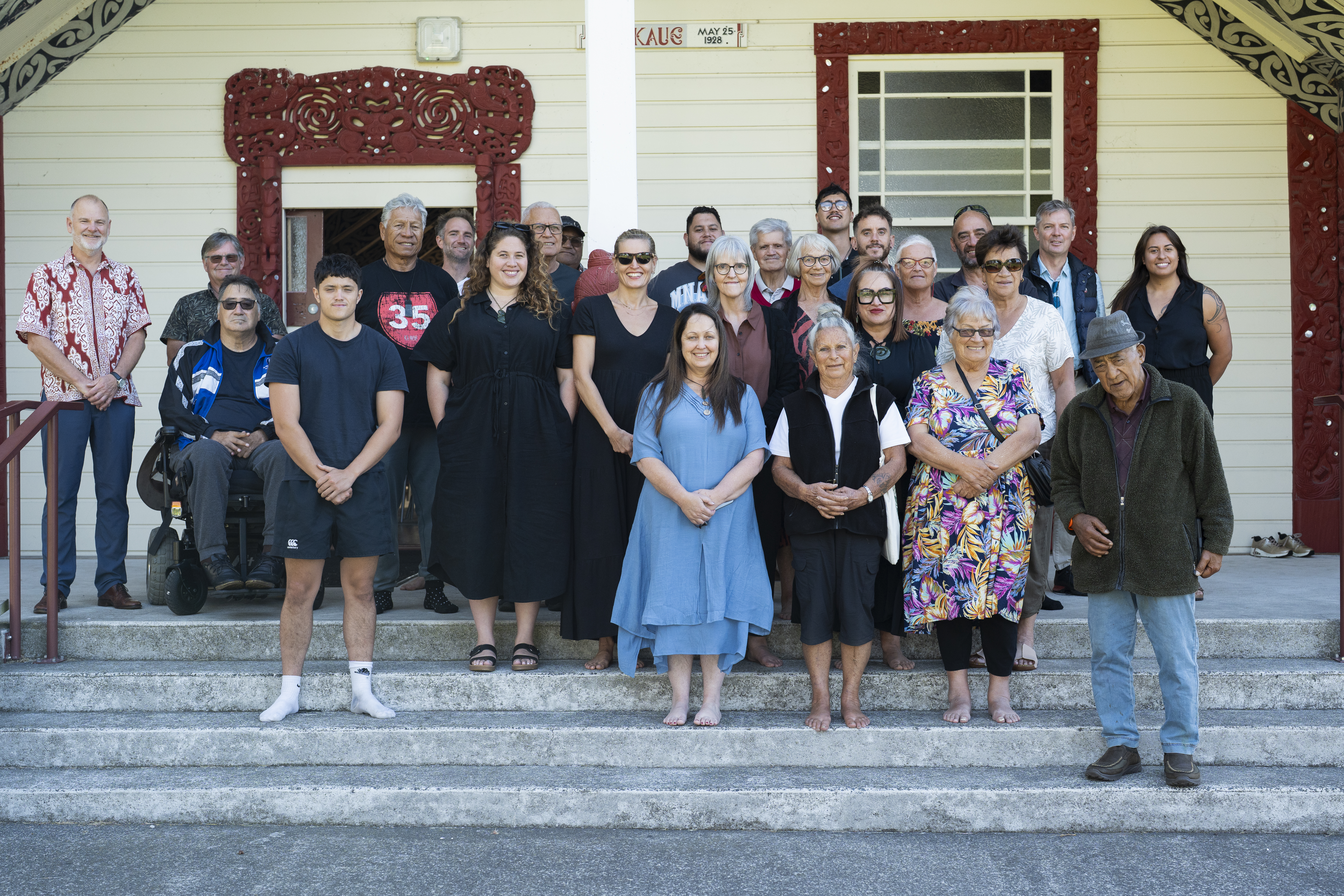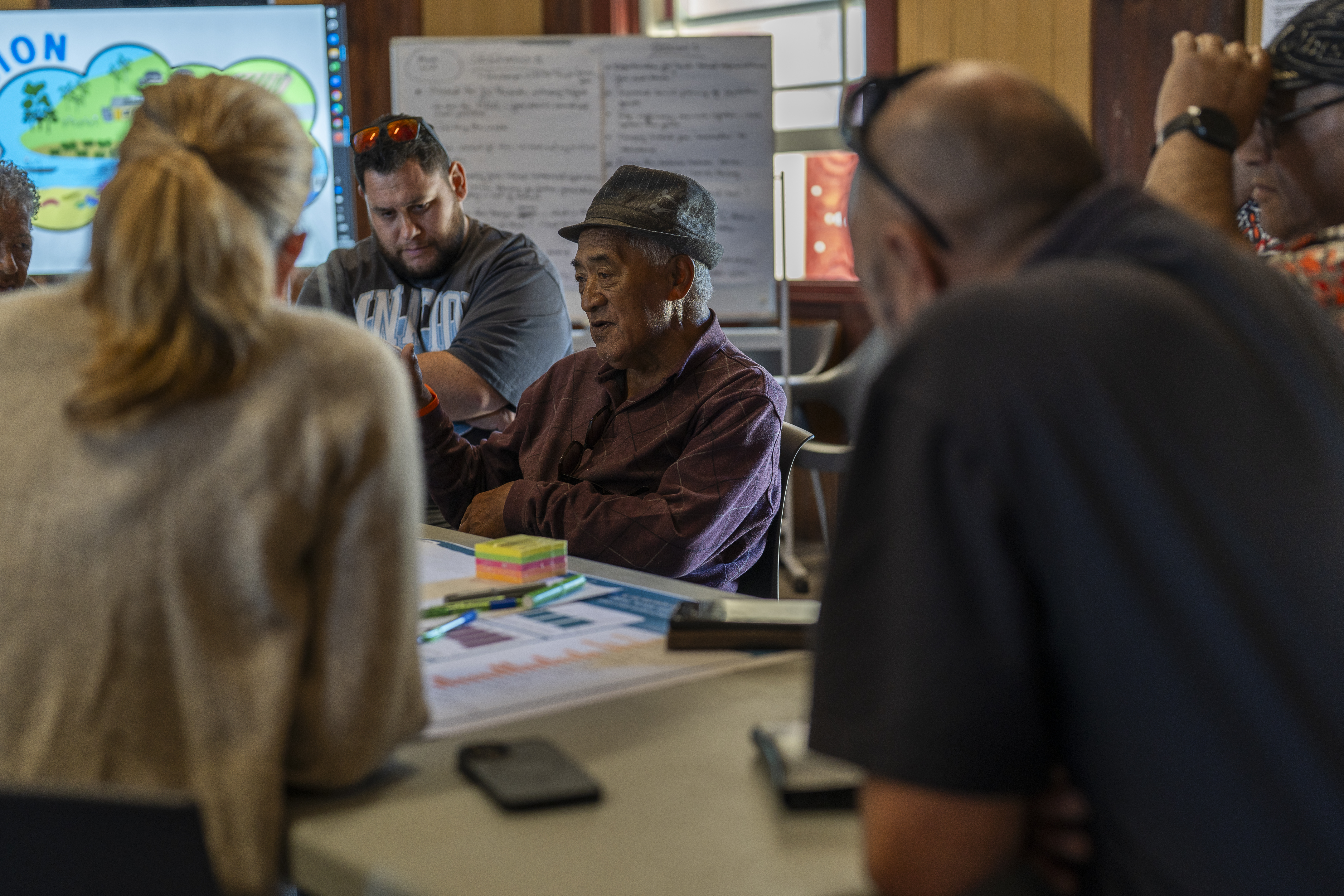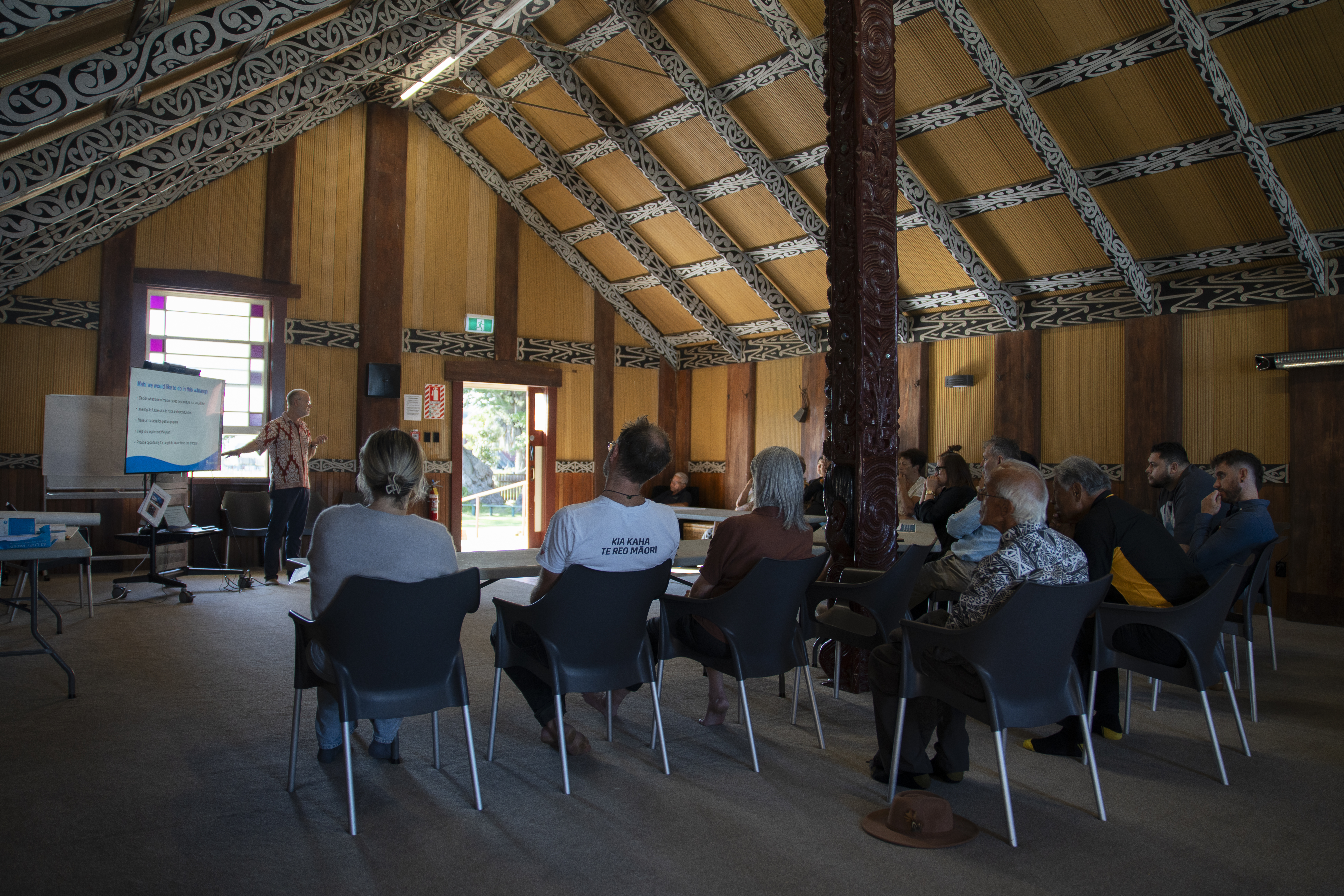Te Arawa Fisheries and Cawthron Institute explore kaupapa of marae-based aquaculture at recent wananga
27 May 2025
Recently, trustees of Te Arawa Fisheries (TAF) joined researchers from the Cawthron Institute-led ‘Fast-tracking finfish climate adaptation’ research programme, at Whakaue Marae in Maketū for a wananga about marae-based aquaculture.
The purpose of the wananga was to explore the possibilities that non-commercial marae-based aquaculture might offer to Te Arawa people as both a means of food production and an avenue for environmental restoration.
Many community members arrived at the event with preconceptions of what ‘aquaculture’ means – fish tanks out the back of the whare kai. Soon it became clear that aquaculture is also knowledge about growing food from the water and has lots to offer to wild mahinga kai (akin to taking an active role in kaitiaki o te taiao).
Peter Rice, Chief Executive of Te Arawa Fisheries, said TAF trustees were eager to korero about marae-based aquaculture opportunities because their vision is to see Te Arawa whanau prosper and the health of te taiao restored.
“Te Arawa Fisheries is here to benefit all Te Arawa descendants, and we see abundant mahinga kai, and a healthy environment as being an essential part of our vision for this future. That’s why we’re committed partners to the Climate Adapted Finfish Research Programme and why we came here to wananga about how marae-based aquaculture might support our aspirations for the future,” Rice said.
“Many trustees, who are elected to represent their iwi groups, have spoken this weekend to share their dissatisfaction with the state of the environment in the Bay of Plenty and Rotorua Lakes regions. We’ve heard many stories about the shocking contrast between what mahinga kai used to be like – the abundance and health of these places that fed our people – compared to their degraded state today which has resulted in unsafe food, unsafe water, and a decline of biodiversity.”
“This wananga is the start of a conversation with Te Arawa iwi about what our vision for food production is in the future, and how aquaculture and fisheries can support that – we’re really pleased to be working with scientists who bring their expertise to the table to support that kaupapa.”
The Maketū Iwi Collective were also involved in the wananga, sharing their Climate Plan with the group, and exploring how their Plan might align with the objectives of the Research Programme and Te Arawa Fisheries.
Programme Leader Dr Jane Symonds of Cawthron Institute said the kaupapa of marae-based aquaculture ties in closely to the kaupapa of the climate adapted finfish research programme because both are concerned with building resilience in the face of an uncertain climate future.
“The Climate Adapted Finfish research programme aims to develop adaptation strategies that can be applied by the commercial finfish aquaculture sector,iwi communities and wild fisheries,” Symonds said.
“One approach is to develop adaptive breeding strategies, looking at new species of interest beyond salmon. We’re working with Te Arawa iwi to look at how we can build resilient non-commercial farming systems, drawing upon both science and mātauranga Māori to support resilient and abundant coastal mahinga kai for generations to come.”
Symonds said the advanced scientific knowledge generated through the finfish research taking place at Cawthron Aquaculture Park in Nelson will inform marae-based aquaculture approaches involving finfish, including taonga species such as tāmure /snapper.
“If we understand these fish in more detail – how they tolerate temperature change, what impact temperature change has on their physiology and survival etc., we’ll be in a good position to explore how we could use regenerative aquaculture practices in coastal areas to produce food and support thriving wild fisheries stocks.”
“As the leader of this particular research programme, I’m also privileged to be able to draw upon the work of my Cawthron colleagues who are doing a lot of research that is aligned with the objectives of this Programme, including exploring integrated multi-trophic aquaculture systems, developing open ocean aquaculture and remote environmental monitoring solutions, exploring new species for aquaculture, developing aquatic restoration solutions and developing kaupapa Māori approaches to aquaculture and aquatic restoration.
“We bring all that knowledge to the table when we’re engaging with industry and communities, and the knowledge of our programme partners, in the hope that we’ll come up with innovative new solutions that build a more resilient aquaculture industry, and support environmental health and community wellbeing.”

Image: Researchers on the Cawthron Institute-led Climate Adapted Finfish Research Programme join Te Arawa Fisheries Trustees and representatives of Whakaue Marae for a wananga about marae-based aquaculture.

Image: Maru Tapsell of the Ngāti Whakaue Board (Koromatua representative and lead for the Rakitu/ Haerehuka claim) joins the group for discussion about future pathways for mahinga kai and environmental restoration in their rohe.

Image: Cawthron Institute’s Dr James Butler, Manager of Transdisciplinary Science, facilitates a session about ‘adaptive pathways planning’.

Image: Peter Rice, CE Te Arawa Fisheries

Image: Dr Jane Symonds, Climate Adapted Finfish Programme Leader